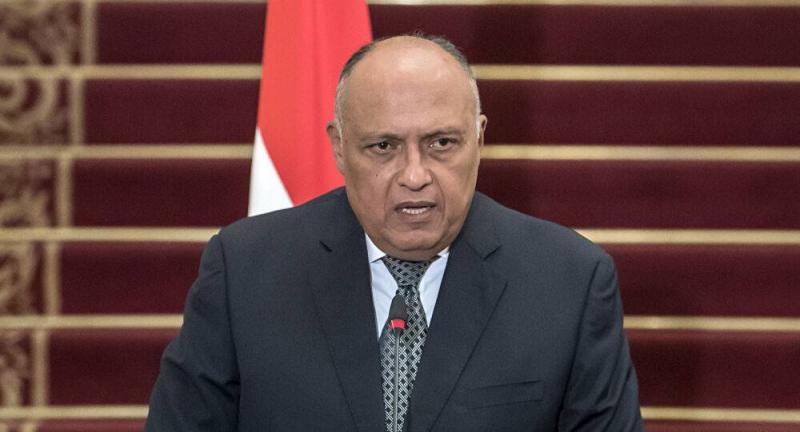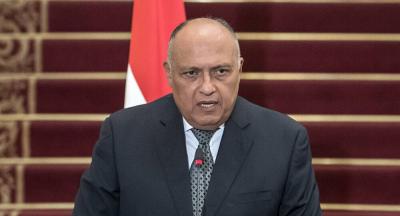Egyptian Foreign Minister Sameh Shoukry discussed bilateral cooperation with the European Union this morning, addressing several issues including the Nile dam crisis and the peace process in Libya. The spokesperson for the Egyptian Foreign Ministry, Ambassador Ahmed Hafez, stated that during the meeting, Shoukry presented the outcomes of the recent UN Security Council session regarding the dam.
The Egyptian Foreign Minister expressed Egypt's appreciation for the recent statement from the European Union, which criticized Ethiopia's announcement of the second filling of the dam without reaching an agreement with the downstream countries. He emphasized the need for a roadmap to achieve a fair and binding agreement within a specific timeframe.
The discussions also covered Egypt's efforts to prevent any migration flows from its shores, in addition to the presence of approximately 6 million migrants and refugees in Egypt. Other topics included the Palestinian issue and the peace process, underscoring the necessity of revitalizing international momentum toward a fair and comprehensive settlement. The Syrian file was also discussed, as well as developments in Libya, where the importance of holding Libyan elections on December 24, 2021, and the exit of all foreign forces and mercenaries from Libya without delay or exception was reiterated.
The Foreign Ministry spokesperson mentioned on his official Twitter account that the discussions took place during a working breakfast held between Shoukry and EU foreign ministers in Brussels. Greek Foreign Minister Nikos Dendias stated in remarks to Al Arabiya and Al Arabiya Al Hadath channels following the working breakfast that Egypt is a strategic partner and that discussions covered all regional issues.
During his visit to Brussels, Minister Sameh Shoukry brought forward the issue of the dam, meeting with European officials. According to a statement from the Egyptian Foreign Ministry spokesperson, Shoukry led a delegation to the Belgian capital to aim for cooperation and review the latest developments concerning the Ethiopian dam file. It is expected that Shoukry will deliver a message from Egyptian President Abdel Fattah El-Sisi to the President of the European Council.
On Friday, UN Security Council members endorsed the African Union's mediation efforts between Ethiopia, Egypt, and Sudan regarding the operations of the dam. Egypt and Sudan urged the council to act to help resolve the dispute after Ethiopia officially notified them of the start of the second filling this week, which both countries firmly oppose.
Regarding a solution to the dam crisis, British UN representative Barbara Woodward affirmed that reaching an agreement requires concessions from all parties involved. She urged all parties in the dam issue to refrain from any actions that could undermine negotiations. French UN representative François Delattre expressed confidence that the parties involved (Egypt, Ethiopia, and Sudan) could reach an agreement on the filling and operation of the dam.
The French representative mentioned that all parties in the dam crisis have legitimate demands, but trust has eroded after a decade of negotiations, highlighting the fragility of regional stability. The Grand Ethiopian Renaissance Dam, nearing completion with the commencement of the second filling phase, remains a contentious issue between Ethiopia and downstream countries, Egypt and Sudan. Recently, Egypt and Sudan stated that Ethiopia officially informed them about the beginning of the second filling of the dam, met with firm rejection from Cairo and Khartoum. Egypt, Sudan, and Ethiopia have been negotiating since 2011 to reach an agreement on the filling and operation of the dam, purported to be the largest source of hydroelectric power in Africa, with a capacity of up to 6,500 megawatts. The Egyptian and Sudanese perspectives are met with Ethiopia's assertion that the dam is a "development project" that will not cause harm to the downstream countries, insisting on African mediation for negotiations.




